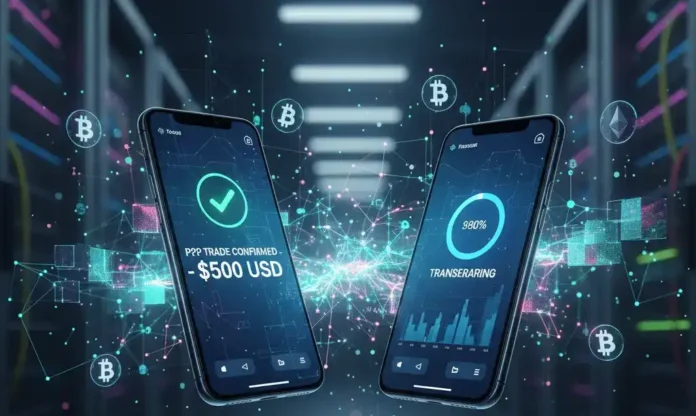For decades, financial exclusion has remained one of the biggest barriers to global economic participation. Billions of people around the world still lack access to basic banking services, leaving them unable to save securely, transfer money efficiently, or engage in cross-border trade. Traditional institutions often require identification documents, minimum balances, or access to physical branches — conditions that many cannot meet. The P2P trading platform is changing this reality by creating an open, digital pathway into the global economy. For the unbanked, peer-to-peer systems are not simply an alternative; they are a lifeline.
Understanding Financial Exclusion
The unbanked population is concentrated in regions with limited infrastructure, rural communities, and developing economies. For many, opening a bank account involves travelling long distances, paying high fees, or meeting identification requirements they cannot fulfil. As a result, they are forced to rely on informal methods of saving and transferring money, often unsafe and inefficient. A P2P trading platform removes these obstacles by operating entirely online, requiring only internet access and a smartphone. With this minimal entry barrier, people who were previously excluded can now join the financial system directly.
Affordable Access to Global Payments
Traditional remittance services and cross-border payments often charge between 5% and 10% per transaction, a significant burden for migrant workers and low-income families. A P2P trading platform allows users to send and receive money at a fraction of the cost by eliminating intermediaries. Funds arrive faster, often within minutes, and without the need for bank accounts. This makes peer-to-peer trading not only cheaper but also more reliable, ensuring that more money reaches families and communities where it is needed most.
Empowering Small Businesses
Micro-entrepreneurs and small businesses are among the biggest beneficiaries of peer-to-peer systems. In regions without reliable banking, small retailers, farmers, and local artisans often struggle to engage with customers beyond their immediate communities. A P2P trading platform enables them to accept payments from anywhere in the world and convert them into local currency through trusted partners. This access to broader markets helps small businesses grow, creating new opportunities for local economies and fostering self-reliance.
Financial Independence for Individuals
The unbanked are not only excluded from transactions but also from the independence that comes with managing personal finances. On a P2P trading platform, individuals take ownership of their wallets, set their own terms, and participate without waiting for institutional approval. This independence empowers people to save securely, transfer funds when needed, and access opportunities previously reserved for the banked population. For many, this sense of control is as valuable as the financial access itself.
Trust Through Community Networks
Trust has always been a challenge for the unbanked, who often rely on informal systems with little accountability. A P2P trading platform replaces this uncertainty with transparent reputation systems, escrow protection, and blockchain verification. Users can evaluate trading partners based on their track record, ensuring reliability even when dealing with strangers. This community-driven trust system provides stability and safety in environments where institutional trust is absent.
Bridging the Digital Divide
Of course, challenges remain. Not all unbanked individuals have smartphones or reliable internet access. Yet the spread of affordable devices and mobile connectivity is rapidly closing this gap. A P2P trading platform that integrates local payment methods such as mobile money, QR codes, and cash-based settlements ensures inclusivity even in areas with limited digital infrastructure. By adapting to local realities, these platforms bridge the gap between the global digital economy and underserved communities.
The Long-Term Impact on Inclusion
Financial access is not just about convenience; it is about empowerment and opportunity. When individuals gain access to secure payments and savings, they are better able to invest in education, healthcare, and small businesses. A P2P platform contributes directly to this process, unlocking potential that traditional systems have failed to deliver. Over time, the impact extends beyond individuals to entire communities, fostering growth, resilience, and stability.
The challenge of financial exclusion cannot be solved by traditional institutions alone. By offering affordable, accessible, and community-driven solutions, the P2P trading platform provides a path toward true inclusion. For billions who have been left behind by conventional finance, it is more than a tool — it is a gateway to participation in the global economy and a chance to build a secure and independent financial future.



































